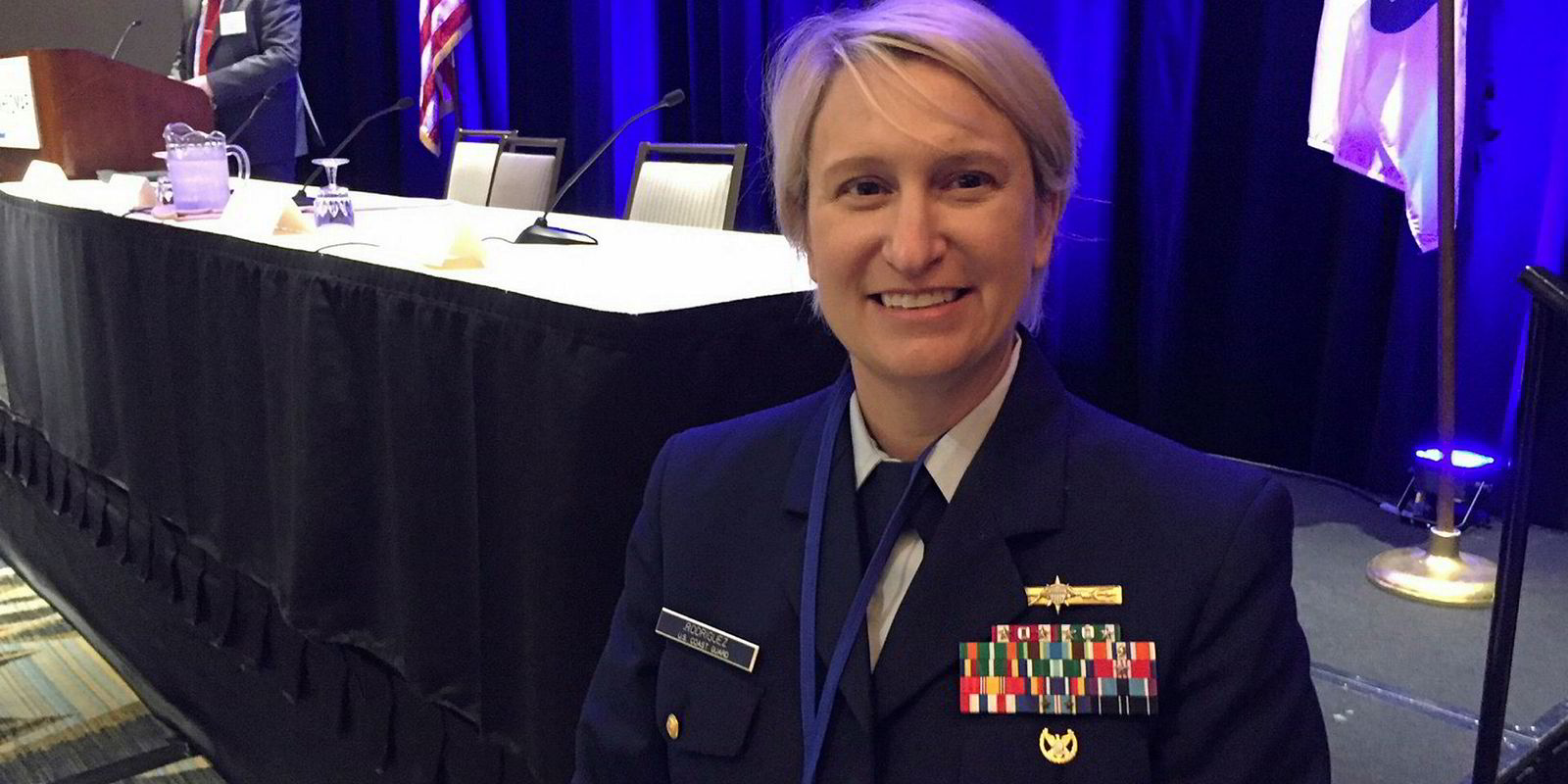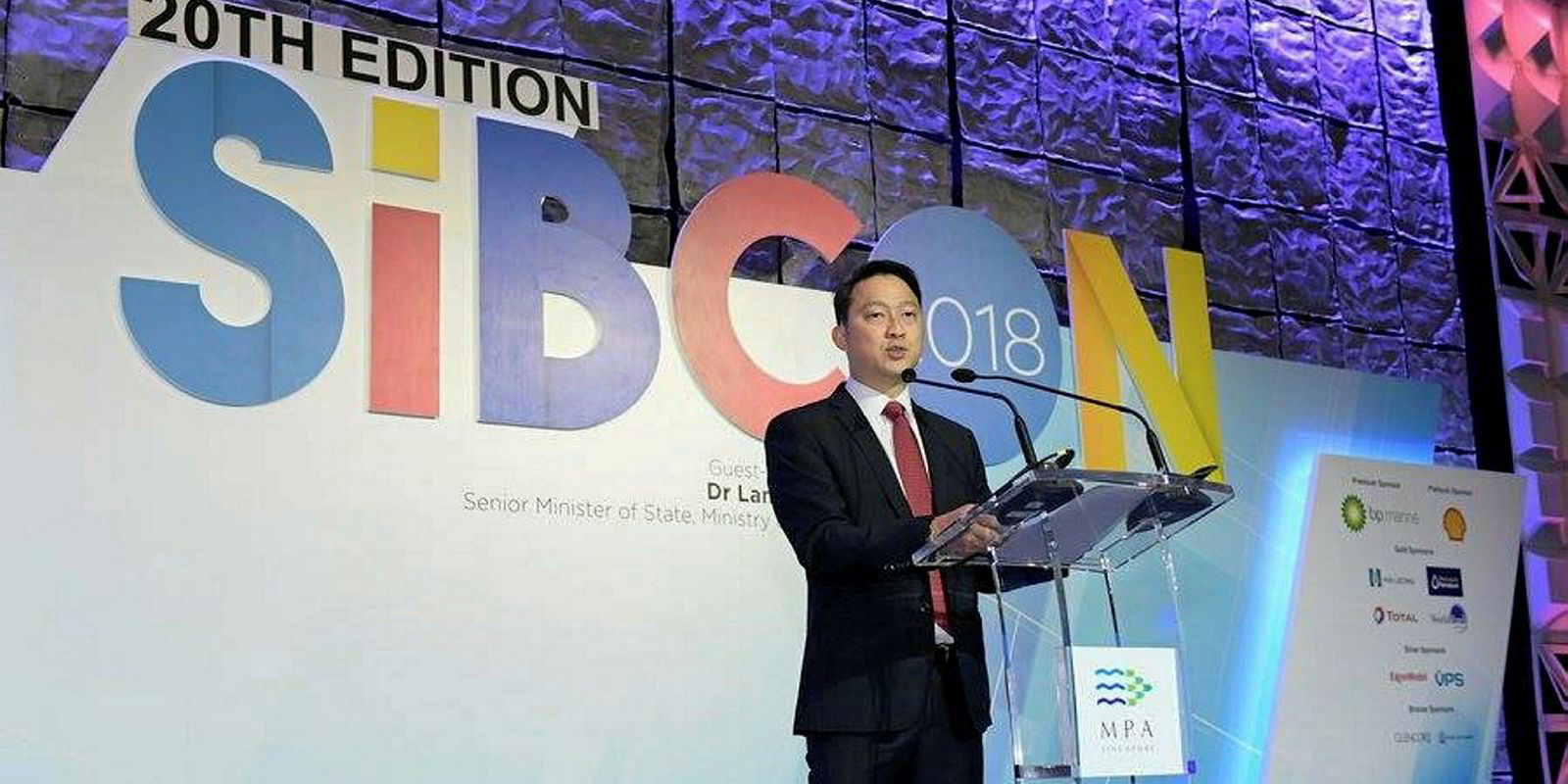Shipowners looking to dispose of wash water from closed-loop scrubbers probably shouldn’t count on a long-term solution in US port facilities.
That was the word from US Coast Guard Commander Nicole Rodriguez in response to a question at the annual Heidmar Marine Forum in Houston today.
Rodriguez, who oversees sector Houston-Galveston, was asked by Heidmar’s David Lockwood, global quality manager, whether the Coast Guard is taking steps to arrange for removal of such effluents as the 1 January 2020 IMO carbon emissions deadline approaches.
"There may be a possibility for a port facility to take some of your waste, but I would look at scrubbers perhaps not as your long-term solution," Rodriguez said.
"When you put a scrubber on your ship, what are you creating? You're creating another waste stream, and where are you going to put that waste stream? If that's a problem now, in 10 years it's going to be an even bigger problem. So if scrubbers are your long-term solution, maybe they shouldn't be.”
Rodriguez was joined on an opening panel exploring "Countdown to 2020: Strategies and Tactics" by BP Shipping’s Aled Roberts, vetting manager for the Americas, and Jack Grogan, account manager for Veritas Petroleum Services.
“A lot of people, me included, consider this the biggest change in vessel propulsion since they were shoveling coal into a boiler," Grogan told the audience in relation to the 2020 mandate.
VPS’ early reviews of 0.1% low-sulphur fuels show products that are far from uniform, he said.
“What we learned from the 0.1% hybrid fuels — the typical specs weren't typical at all. They're all over the board. In density, some resemble diesel and some resemble fuel oil," Grogan said.
Operators will face increasingly complex choices, he said.
“The main message I'm trying to deliver today is there are going to be pros and cons to all the fuel. Some characteristics will be beneficial, some not so beneficial. It will get more complicated for the operators.”
Grogan said predictions of a significant price spread between high-sulphur 0.5% fuel and distillates appear to be on track, but he cautioned scrubber users to check availability with suppliers well ahead of the deadline.
“I would recommend you talk to your favorite suppliers,” he said.
“If you've got scrubbers I'm not sure how much availability there will be early next year because there's not much demand for it. Talk to your supplier or you may wind up burning marine gas oil in your ship fitted with a scrubber.”






